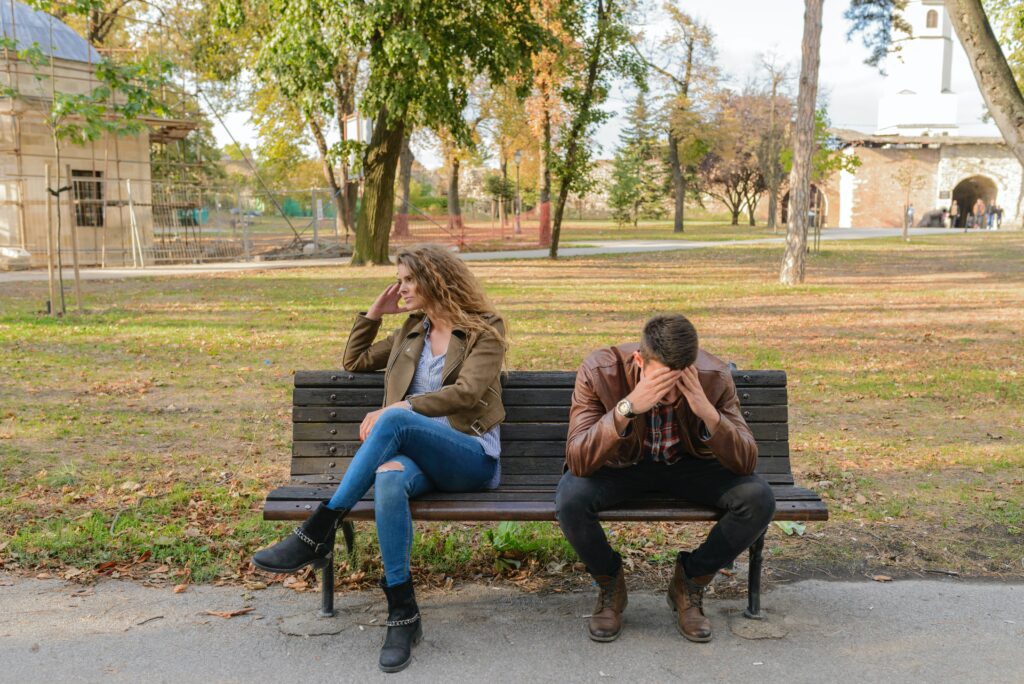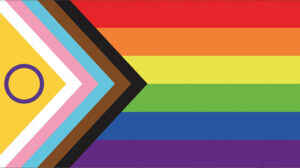Toxic relationships are hot in contentious stories, prime-time television, and gossip magazines. But what does it look like when that toxic love finds its way into your life, and you’re ready to move on?
Leaving toxic relationships can be a complex and painful process, so let’s talk about what that might look like and how you can let go of the toxic love that’s holding you back.
Knowing you need it to end doesn’t make it any easier
Recognizing a relationship as toxic is not the same thing as being ready to acknowledge the emotional impact of its end. Walking away from a relationship that has mattered to you for any length of time can be messy, no matter how ready you are for it to end. Toxic relationships are often tangled in trauma and memories. The combination of the two can create turmoil when it comes time to step away.
Endings are hard, even when they have been a long time coming, or you have experienced traumas in the relationship you are now separating yourself from. There is nothing wrong with you if you feel hurt or fear at the prospect of ending this relationship that has caused you pain. Part of the success of toxic manipulation and influence is that you begin to doubt yourself.
Your confidence in your ability to make decisions may falter, and alongside it, that certainty can magnify that confusion and hurt. You aren’t failing, and there is nothing weak about the struggle of validating what you’ve been through as well as finding the strength to choose something new moving forward.
More than just romantic relationships can be toxic
Toxicity occurs in relationships beyond romantic ones. If you’ve experienced a toxic dynamic in a platonic or familial relationship, your path forward toward healing may look a bit more uncertain.
When you hear people talking about leaving toxic relationships and the life they lead after, it may feel like a dream to experience complete erasure of the person (or people) who’ve had a hand in your trauma. But what does moving forward look like when the toxicity came from a relationship entrenched in the core of your being?
Let’s talk about the shape of toxicity in non-romantic relationships and how it may impact your relationship with healing.
Toxic relationships in your family
Family of origin relationships rooted in trauma or toxicity can create turmoil in the very fiber of your being. How do you untangle the toxicity when it begins in the earliest memories you have? Whether this is one toxic person or a perpetuated concept of toxicity that permeates the dynamics of family interaction, it may feel like you’ll never be free.
Some residual impacts of growing up in toxic family dynamics are:
- Low or cyclically dipping self-esteem
- Struggling to make sustainable connections with others
- The need for control in all situations
- Lack of trust in others
 Familial relationships may be toxic—or become toxic—for several reasons. It’s not just abusive or apparent instances of trauma that create toxic family dynamics. Your family relationship may have been toxic due to: soft parenting, authoritarian parenting, substance abuse, mental health struggles among family members, or family members who have been a victim themselves. Knowing these things doesn’t make it easier to end toxic relationships, but it can help you understand where to begin when you’re ready to work through the healing that you deserve.
Familial relationships may be toxic—or become toxic—for several reasons. It’s not just abusive or apparent instances of trauma that create toxic family dynamics. Your family relationship may have been toxic due to: soft parenting, authoritarian parenting, substance abuse, mental health struggles among family members, or family members who have been a victim themselves. Knowing these things doesn’t make it easier to end toxic relationships, but it can help you understand where to begin when you’re ready to work through the healing that you deserve.
Friendships that need a biohazard warning
Are you friends or frenemies? When you spend more time in your friendship feeling like you’re walking on eggshells or in direct competition with your friend, it’s likely the latter. A toxic friendship is one in which there is no trust in your emotional safety or even space for an emotional presence.
A little drama is a part of life—things happen, and there’s not always a neat resolution to the experiences you share with the people you love. But when drama permeates your friendship, boundaries are constantly in flux, or there’s a lack of trust, it may be time to re-evaluate the value of the relationship you share with this person.
Toxic friendships come in many forms, but if you begin to feel like you are playing a supporting role in your own experiences due to drama, discomfort, or jealousy, it’s time to put an end to it.
Letting go of loyalty
Separating love and loyalty with boundaries that are safer for you is complex. Reading phrases like “saying goodbye” or “getting closure” might make you feel anxious about how that’s going to look or how you’ll safely get through it. If you feel like maybe the pain of an ending or the energy expenditure this battle will take is just not worth it, we hear you.
It’s difficult to look ahead to something that you’re dreading or know you will grieve and willfully put your energy into causing yourself (and maybe someone else) that pain.
Learning to trust yourself can feel traumatic
Moving on, or letting go of a toxic relationship, can feel particularly harrowing when you begin to evaluate the state of your relationship with yourself when it ends. Toxicity and trauma each have a way of creating fertile ground for self-doubt. When you no longer trust yourself to make decisions or can no longer differentiate your safety signals from the dangerous warnings, you may struggle to act at all.
This self-doubt is the painful reality for so many people who have been brave enough to walk away from toxicity, only to be left with the pain of distrust in their wellbeing.
Healing is possible
When you put your heart into the hope of healing, anything is possible. You can recover and thrive in the wake of the trauma you’ve experienced. You may choose to find healing on your own, but there is always support available to you.
In therapy, you’ll begin to unravel the coping mechanisms that you built to keep yourself safe in the toxic environment where love grew. You will be offered the safety to doubt yourself and the security to learn how to do that without undermining your ability to trust yourself again.
You are not to blame
If you carry one thing with you today into the days ahead of you, I hope it’s that you know this is not your fault. No matter how authentic you are, how well you love someone, or how careful you are about the love you let into your life, toxicity is pervasive. You are not to blame for the pain or the trauma you’ve experienced, and there is nothing wrong with you for feeling so much hurt in arriving at an end.
This is not your fault, and it never was. We are here to help you find the path forward when you’re ready. Connect with us today to get started.

Awakened Path Counseling proudly provides quality transpersonal and traditional psychotherapy, at their offices in Middlesex County, New Jersey, and online. Their experienced therapists specialize in serving teens, children, adults, couples, and families. The experienced clinicians at Awakened Path Counseling are passionate about their holistic approach to mental health, addressing your emotional, cognitive, physical, and spiritual needs.


